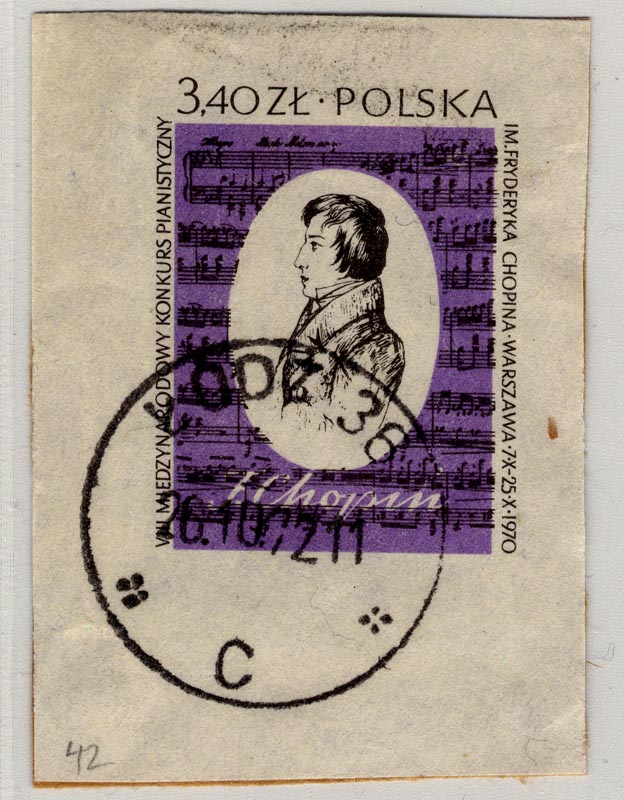Back to Chopin at 200 Home | Exhibit Gallery
Postage stamp
Poland, 1970
Opochinsky Collection
Gilmore Music Library

Both Poland and France have a claim on Chopin; he was born and raised in Poland, to a Polish mother and a French father, and he spent most of his adult life in France. He is only one of the many distinguished composers who have lived in France, but in Poland his stature is unrivalled, and he has long been regarded as a national hero there.
In a series of partitions in the late 18th century, Russia, Prussia, and Austria carved up Poland until it disappeared completely from the map. For most of Chopin’s life, Warsaw was part of Russia, much to the resentment of the Polish population. When Chopin left home for a concert tour in 1830, he had no idea that Poland was on the brink of revolution. War broke out in November 1830, but after nearly a year of hostilities, the Russian army put down the rebellion, leaving the country even more firmly under Russian control. Because of these events, Chopin never returned to his homeland, but he was sympathetic to the Polish national cause. He composed many pieces that reflected his origins, including the mazurkas, the polonaises, and the “Revolutionary” Etude (Op. 10, no. 12). French public opinion tended to support the Polish revolutionaries, so Chopin’s nationality may well have enhanced his personal popularity.
Poland did not regain its independence until the end of the World War I. Following World War II, Poland found itself under Russian domination for four more decades, although this time it remained nominally independent. Even though Chopin had been a symbol of Polish pride and resistance to foreign control, the Russian-influenced government felt obliged to accept his continuing status as a national hero. The postage stamp seen here is but one of many examples of his enduring place in the Polish pantheon.
